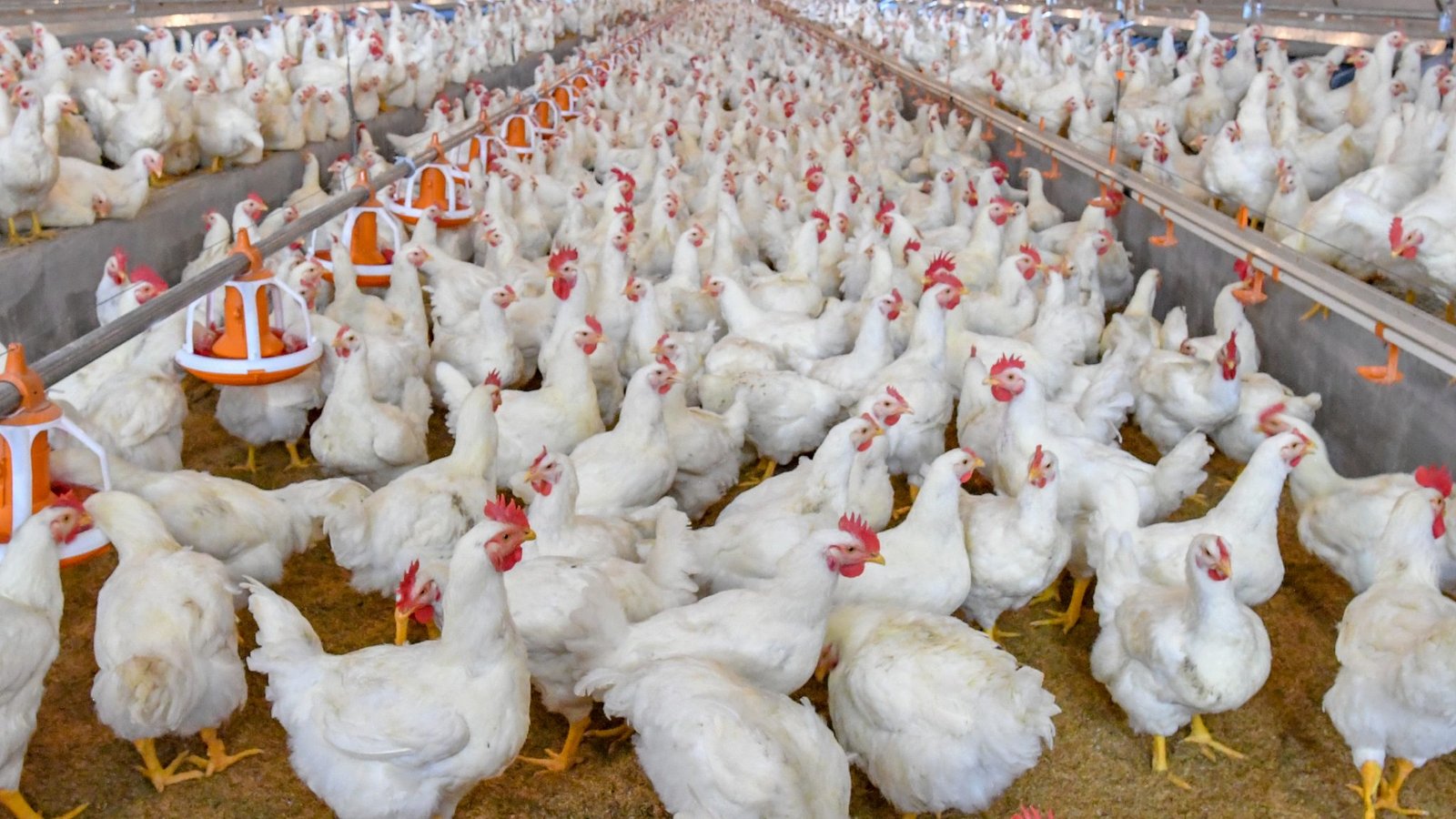
What You Need to Know Before Starting a Poultry Farm in South Africa
Starting a poultry farm in South Africa can be a lucrative business venture, but it is important to understand the necessary steps and requirements before beginning. This guide will provide an overview of the key considerations for starting a poultry farm in South Africa.
1. Location: The location of your poultry farm is an important factor to consider. It should be close to a reliable source of water, have access to good quality feed, and be in an area with a suitable climate for poultry production.
2. Licensing: You will need to obtain a license from the Department of Agriculture, Forestry and Fisheries in order to operate a poultry farm in South Africa. This license will need to be renewed annually.
3. Equipment: You will need to purchase the necessary equipment for your poultry farm, such as cages, feeders, drinkers, and incubators.
4. Feed: You will need to source a reliable supply of feed for your poultry. This can be purchased from a feed mill or you can produce your own feed.
5. Staff: You will need to hire staff to help with the day-to-day operations of your poultry farm.
6. Health and Safety: You will need to ensure that your poultry farm meets all health and safety regulations. This includes ensuring that the environment is clean and free from disease, and that the birds are kept in suitable conditions.
By following these steps and taking the necessary precautions, you can ensure that your poultry farm is successful and profitable.
The Benefits of Poultry Farming in South Africa
Poultry farming in South Africa has become increasingly popular in recent years, and for good reason. This type of farming offers a number of benefits to both the farmer and the consumer.
For the farmer, poultry farming is a relatively low-cost and low-risk venture. It requires minimal capital investment, and the cost of feed and other inputs is relatively low. Additionally, poultry farming is a relatively low-maintenance activity, as the birds require minimal care and attention. This makes it an ideal venture for those with limited resources or time.
Poultry farming also offers a number of economic benefits. It provides employment opportunities for those living in rural areas, and it can help to stimulate the local economy. Additionally, poultry farming can help to reduce the cost of food production, as the birds can be raised in a more efficient and cost-effective manner than other livestock.
Finally, poultry farming can provide a number of health benefits. The birds are a source of lean protein, and they are also a good source of essential vitamins and minerals. Additionally, poultry farming can help to reduce the risk of food-borne illnesses, as the birds are raised in a clean and hygienic environment.
In conclusion, poultry farming in South Africa offers a number of benefits to both the farmer and the consumer. It is a low-cost and low-risk venture, and it can help to stimulate the local economy and reduce the cost of food production. Additionally, it can provide a number of health benefits, as the birds are a source of lean protein and essential vitamins and minerals. For these reasons, poultry farming is an increasingly popular activity in South Africa.
How to Choose the Right Location for Your Poultry Farm
Choosing the right location for a poultry farm is an important decision that can have a significant impact on the success of the business. There are several factors to consider when selecting a location for a poultry farm, including access to resources, zoning regulations, and the local climate.
Access to Resources: When selecting a location for a poultry farm, it is important to consider the availability of resources such as water, feed, and labor. Access to a reliable source of water is essential for the health and well-being of the birds, and it is important to ensure that the water supply is of good quality. Additionally, the availability of feed and labor should be taken into account when selecting a location.
Zoning Regulations: It is important to research local zoning regulations before selecting a location for a poultry farm. Zoning regulations can vary from one area to another, and it is important to ensure that the proposed location is in compliance with local laws. Additionally, it is important to consider the potential impact of the poultry farm on the surrounding area, such as noise, odor, and traffic.
Local Climate: The local climate can have a significant impact on the success of a poultry farm. It is important to consider the temperature, humidity, and precipitation levels of the area when selecting a location. Additionally, the presence of predators and other pests should be taken into account when selecting a location.
By taking the time to research and consider these factors, it is possible to select the ideal location for a poultry farm. Doing so can help ensure the success of the business and maximize profits.
The Essential Equipment for a Successful Poultry Farm
A successful poultry farm requires a variety of essential equipment in order to ensure the health and safety of the birds, as well as the efficiency of the operation. The following is a list of the essential equipment needed for a successful poultry farm:
1. Feeders: Feeders are necessary to ensure that the birds have access to a consistent supply of food. They should be designed to prevent contamination and waste, and should be easy to clean and maintain.
2. Waterers: Waterers are essential for providing the birds with a clean and fresh supply of water. They should be designed to prevent contamination and waste, and should be easy to clean and maintain.
3. Incubators: Incubators are necessary for hatching eggs. They should be designed to maintain a consistent temperature and humidity level, and should be easy to clean and maintain.
4. Brooders: Brooders are necessary for providing a warm and safe environment for young chicks. They should be designed to maintain a consistent temperature and humidity level, and should be easy to clean and maintain.
5. Ventilation systems: Ventilation systems are necessary for providing the birds with fresh air and reducing the risk of disease. They should be designed to provide adequate air circulation and should be easy to clean and maintain.
6. Lighting systems: Lighting systems are necessary for providing the birds with a consistent light cycle. They should be designed to provide adequate light levels and should be easy to clean and maintain.
7. Security systems: Security systems are necessary for protecting the birds from predators and theft. They should be designed to provide adequate security and should be easy to install and maintain.
By investing in the essential equipment listed above, poultry farmers can ensure the health and safety of their birds, as well as the efficiency of their operation.
How to Care for Your Poultry in South Africa
Poultry farming is an important part of the agricultural industry in South Africa. Proper care of poultry is essential for the health and wellbeing of the birds, as well as for the success of the farm. Here are some tips for caring for poultry in South Africa.
1. Provide a Clean Environment: Poultry should be kept in a clean and dry environment. The coop should be regularly cleaned and disinfected to prevent the spread of disease.
2. Feed the Birds Properly: Poultry should be fed a balanced diet that meets their nutritional needs. Feed should be fresh and free from mould or other contaminants.
3. Monitor the Birds’ Health: Regularly check the birds for signs of illness or injury. If any birds appear to be unwell, seek veterinary advice immediately.
4. Provide Adequate Space: Poultry should have enough space to move around and spread their wings. Crowded conditions can lead to stress and disease.
5. Protect the Birds from Predators: Predators such as foxes, snakes, and birds of prey can be a threat to poultry. Secure the coop and surrounding area to protect the birds from predators.
6. Vaccinate the Birds: Vaccinating poultry is important for preventing disease. Consult with a veterinarian to determine which vaccines are necessary for your birds.
By following these tips, you can ensure that your poultry are healthy and well cared for. Proper care of poultry is essential for the success of any poultry farm in South Africa.
The Challenges of Poultry Farming in South Africa and How to Overcome Them
Poultry farming in South Africa is a major industry, with the country being the largest producer of eggs and the second-largest producer of poultry meat in Africa. Despite its importance, poultry farming in South Africa faces a number of challenges that can make it difficult for farmers to succeed. This article will discuss some of the major challenges of poultry farming in South Africa and how to overcome them.
One of the major challenges of poultry farming in South Africa is the high cost of production. The cost of feed, housing, and other inputs can be prohibitively expensive for small-scale farmers. To overcome this challenge, farmers should look for ways to reduce their production costs. This could include using locally sourced feed ingredients, investing in energy-efficient housing, and taking advantage of government subsidies and other incentives.
Another challenge of poultry farming in South Africa is the prevalence of disease. Diseases such as avian influenza, Newcastle disease, and infectious bursal disease can cause significant losses for farmers. To reduce the risk of disease, farmers should ensure that their birds are vaccinated and that their housing and equipment are kept clean and sanitized. Additionally, farmers should practice good biosecurity measures, such as limiting access to their farms and avoiding contact with wild birds.
Finally, the marketing of poultry products can be a challenge for farmers in South Africa. Many farmers lack the resources to market their products effectively, which can lead to low prices and reduced profits. To overcome this challenge, farmers should look for ways to increase their visibility, such as participating in local markets and joining producer organizations. Additionally, farmers should explore alternative marketing channels, such as online sales and direct-to-consumer sales.
In conclusion, poultry farming in South Africa faces a number of challenges, including high production costs, the prevalence of disease, and difficulties in marketing products. To overcome these challenges, farmers should look for ways to reduce their production costs, practice good biosecurity measures, and explore alternative marketing channels. With the right strategies in place, poultry farmers in South Africa can be successful and profitable.











